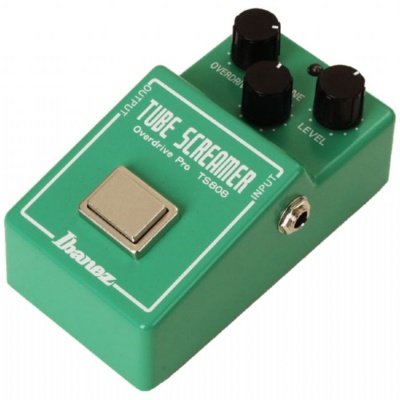Effect: Difference between revisions
Amwelladmin (talk | contribs) No edit summary |
Amwelladmin (talk | contribs) No edit summary |
||
| Line 11: | Line 11: | ||
Well, you get the point. | Well, you get the point. | ||
{{ | {{sa}} | ||
*[[Nominalisation]] | *[[Nominalisation]] | ||
*[[Noun]]s and [[verb]]s in their proper place. | *[[Noun]]s and [[verb]]s in their proper place. | ||
{{ref}} | {{ref}} | ||
Revision as of 11:36, 18 January 2020
|
Towards more picturesque speech™
 The original TS-808 Tube Screamer - everything you need for that fat, creamy, crying tone.
|
An effect is, always, a noun. One may speak of the rainbow effect, special effects or, if one is a fan of the electric guitar, an effects pedal like Ibanez’s Tube Screamer[1] or Jim Dunlop’s Cry-Baby Wah-Wah[2].
Put those two puppies together: now that’s an effect.
But one must not use effect as a verb, even as a space-filler, however clamorously your inner articled clerk implores you to. “Effect” is the weakest verb in the English language. Whatever you are intending to “effect” is almost certain to be a nominalisation of a stronger, better verb; one better suited to the task you have in mind.
Why say “effect the conversion of shares” when you mean “convert the shares”?
Why say “effect the delivey of a notice” when you mean “deliver a notice”?
Why say “effect the butchery of a perfectly good sentence” when you mean -
Well, you get the point.
See also
- Nominalisation
- Nouns and verbs in their proper place.